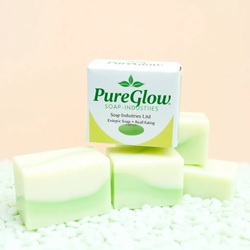Table of
Contents
1.0 Executive Summary
1.1 Business Overview
1.2 Mission and Vision Statements
1.3 Products and Services
1.4 Target Market
1.5 Business Objectives
1.6 Keys to Success
2.0 Company Description
2.1 Company Ownership and Structure
2.2 Location and Facilities
2.3 Nature of the Business
2.4 Legal Considerations
3.0 Industry Analysis
3.1 Overview of the Soap Industry in Nigeria
3.2 Trends in the Soap Market
3.3 Growth Drivers
3.4 Challenges in the Industry
4.0 Market Analysis
4.1 Market Segmentation
4.2 Target Market Description
4.3 Market Needs and Demand
4.4 Market Size and Potential
5.0 Competitive Analysis
5.1 Key Competitors in Lagos
5.2 Competitor Strengths and Weaknesses
5.3 Competitive Advantage of Our Soap Brand
6.0 Marketing Plan
6.1 Product Strategy
6.2 Pricing Strategy
6.3 Distribution / Place Strategy
6.4 Promotion and Advertising Strategy
6.5 Branding and Packaging Strategy
7.0 Operational Plan
7.1 Production Process (Soap Manufacturing)
7.2 Production Capacity and Output
7.3 Raw Material Sourcing
7.4 Equipment and Technology
7.5 Quality Control Measures
8.0 Management and Organizational Structure
8.1 Organizational Structure
8.2 Roles and Responsibilities
8.3 Staffing Plan
8.4 Training and Development
9.0 Financial Plan
9.1 Assumptions and Considerations
9.2 Startup Capital Requirements
9.3 Sources of Funding
9.4 Sales Forecast
9.5 Operating Expenses
9.6 Profit and Loss Projection
9.7 Cash Flow Projection
9.8 Balance Sheet Projection
9.9 Break-even Analysis
10.0 Sustainability and CSR Plan
10.1 Environmental Sustainability
10.2 Community Engagement
10.3 Waste Management and Recycling
11.0 Growth and Expansion Strategy
11.1 Product Line Diversification
11.2 Expansion into Regional Markets
11.3 Export Opportunities
12.0 SWOT Analysis
12.1 Strengths
12.2 Weaknesses
12.3 Opportunities
12.4 Threats
13.0 Legal, Regulatory, and Compliance
Considerations
13.1 Business Registration and Licensing
13.2 NAFDAC Approval
13.3 Taxation and Regulatory Compliance
14.0 Insurance and Risk Management
14.1 Insurance Coverage
14.2 Workplace Safety Measures
15.0 Risk Analysis
15.1 Market Risks
15.2 Financial Risks
15.3 Operational Risks
15.4 Regulatory Risks
15.5 Competitive Risks
15.6 Economic Risks
15.7 Safety and Environmental Risks
16.0 Contingency Plan
17.0 Milestones and Implementation Timeline
18.0 Exit Strategy
19.0 Appendices
20.0 Conclusion
1.0 Executive Summary
Business Name: PureGlow Soap Industries Ltd
Business Address: Plot 15, Oshodi Industrial Estate, Lagos, Nigeria
Business Type: Manufacturing and Distribution of Soaps (Bar, Liquid,
Medicated, Organic)
Ownership Structure: Limited Liability Company (CAC Registered)
Target Market: Lagos households, schools, hotels, hospitals,
supermarkets, wholesalers, and online platforms
Overview:
PureGlow Soap Industries Ltd is a proposed soap manufacturing company set to
launch operations in Lagos, Nigeria. The company will specialize in producing
high-quality soaps that cater to diverse consumer needs — including daily
hygiene (bar and liquid soap), healthcare needs (antibacterial and medicated
soap), and organic/natural skincare soaps. With the rising demand for hygiene
and personal care products in Nigeria, PureGlow aims to position itself as a
leading local brand that competes with both established local and imported soap
brands.
Market Opportunity:
- Lagos,
with over 20 million residents, presents a huge and growing demand for
personal hygiene products.
- Increasing
awareness of hygiene due to public health campaigns and post-pandemic
behavioral shifts has boosted soap consumption.
- Imports
dominate the premium segment, while unbranded local soaps dominate the
low-income segment. PureGlow will strategically position itself as a
mid-tier yet high-quality brand.
Financial Snapshot (Projections for Year 1–3):
- Startup
Capital Requirement: ₦45 million (equipment, raw materials,
facility, working capital)
- Projected
Revenue (Year 1): ₦120 million
- Projected
Revenue (Year 2): ₦180 million
- Projected
Revenue (Year 3): ₦250 million
- Break-even
Point: Month 18 (mid-Year 2)
Funding Needs:
PureGlow requires an estimated ₦45 million, which will be raised through
a combination of equity investment (40%) and bank loan facilities
(60%).
2.0 Company Overview
Business Concept:
PureGlow Soap Industries Ltd is committed to producing safe, affordable, and
high-quality soaps for Nigerian households and institutions. The company will
leverage locally sourced raw materials while adopting modern soap-making
techniques to ensure consistency, scalability, and compliance with regulatory
standards.
Legal Structure:
The business will be registered as a Limited Liability Company (LLC)
with the Corporate Affairs Commission (CAC), ensuring credibility and
compliance.
Ownership & Management:
- Founder/CEO: Mr.
Adewale Johnson (10 years experience in FMCG distribution)
- Operations
Manager: To be hired, with expertise in chemical
engineering or industrial chemistry
- Finance
& Admin Manager: Experienced accountant to handle compliance,
accounting, and payroll
- Sales
& Marketing Manager: Specialist in retail
distribution and digital marketing
Short-Term Objectives (0–2 Years):
- Set
up production facility and commence full operations in Lagos.
- Achieve
break-even point by mid-second year.
- Secure
distribution partnerships with at least 50 supermarkets and 5 major
wholesalers.
Long-Term Objectives (3–5 Years):
- Expand
production capacity to service the South-West market (Ibadan, Abeokuta,
Ondo).
- Introduce
an export line targeting West African neighbors (Ghana, Benin, Togo).
- Attain
a 5% share of Lagos soap market within 5 years.
3.0 Vision, Mission & Core
Values
Vision Statement:
To be one of Nigeria’s leading soap manufacturers, recognized for quality,
affordability, and innovation in personal care products.
Mission Statement:
To provide Nigerian households and institutions with safe, affordable, and
effective soaps that promote hygiene and well-being while supporting local raw
material sourcing and employment generation.
Core Values:
- Quality
First: Commitment to high production standards.
- Customer-Centricity:
Products designed to meet consumer needs.
- Integrity:
Transparency in business operations.
- Innovation:
Continuous product development and improvement.
- Sustainability:
Local sourcing, eco-friendly practices, and CSR initiatives.
![Business Plan]() Business Plan 179
Business Plan 179
![Job Aptitude Test]() Job Aptitude Test 3
Job Aptitude Test 3
![Feasibility Study]() Feasibility Study 45
Feasibility Study 45
![Software License]() Software License 6
Software License 6
![Training Manual]() Training Manual 2
Training Manual 2











Login To Comment